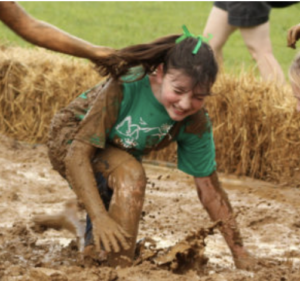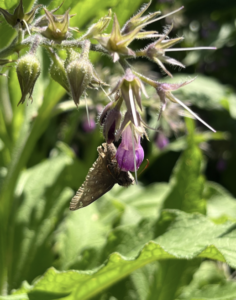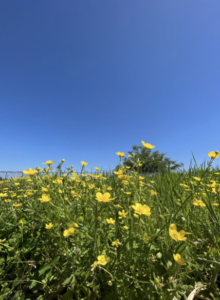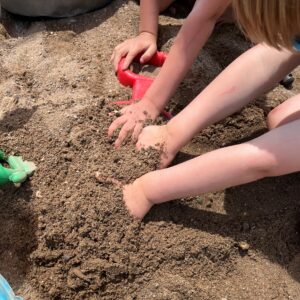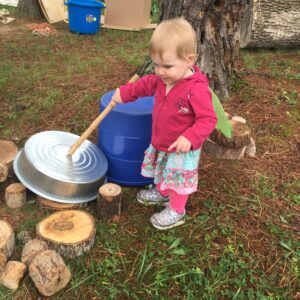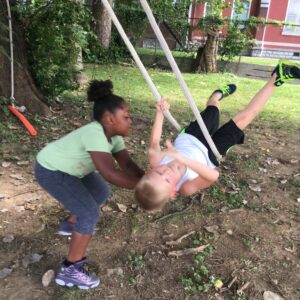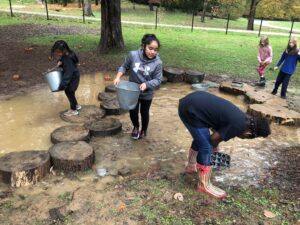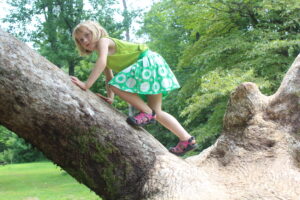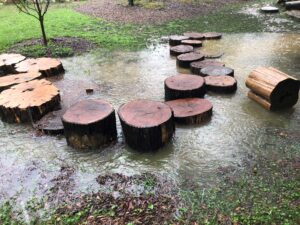 What is it that you enjoy most about being in nature? When answering this question, it is common to hear “the feeling of the wind in my hair” or “the sound of running water”. Responses such as these are describing sensory experiences, including touch, taste, sight, sound, smell, and body awareness sensations. Sensory processing, the theory that describes sensory experiences, is most simply defined by our ability to use all of our senses to determine how to interact with our environment.
What is it that you enjoy most about being in nature? When answering this question, it is common to hear “the feeling of the wind in my hair” or “the sound of running water”. Responses such as these are describing sensory experiences, including touch, taste, sight, sound, smell, and body awareness sensations. Sensory processing, the theory that describes sensory experiences, is most simply defined by our ability to use all of our senses to determine how to interact with our environment.
Every individual has sensory needs that we often meet through our choices in activities and environments. Some individuals, for example those who are neurodiverse or have a mental illness, may find it more difficult to identify and interpret their sensory needs. Bernheim Forest and its Playcosystem provide an excellent space for all people to explore sensory experiences for enjoyment and to practice self-regulation. If you would like to learn more, below are some examples of sensory experiences visitors may encounter while interacting with nature at the Playcosystem.
- Sight: A visitor may find sight experiences through searching for small bugs on the ground or watching the large group of other visitors run around the playground.
- Smell: A visitor may find smell experiences through the scent of the grass or flowers.
- Taste: A visitor may find taste experiences through holding out their tongue to catch rain droplets or sneaking a small taste of their mud kitchen creation.
- Sound: A visitor may find sound experiences through listening to birds chirping or banging together loose parts.
- Touch: A visitor may find touch experiences through comparing rough and smooth parts of rocks or digging through sand.
- Proprioception: Proprioception can be defined as the sensation of pressure. A visitor may find proprioceptive experiences through feeling the pressure on the hands and shoulders when hanging from a tree branch or carrying a heavy bucket of water.
- Vestibular: Vestibular input can be defined as the sensation of the body moving through space. A visitor may find vestibular experiences when swinging from a rope or hanging upside down.
- Interoception: Interoception can be defined as the awareness of the internal feelings of the body. A visitor may find interoception experiences through noticing feelings of fear or nervousness in risk-taking situations or noticing fatigue for independence in knowing when to take a break.
Author – Bri Marr. Bri is a doctoral capstone student from the Spalding University Auerbach School of Occupational Therapy working with the Children at Play Network from May to August, 2023. As part of her capstone experience she has created a series of blog posts on outdoor play through the lens of occupational therapy.
